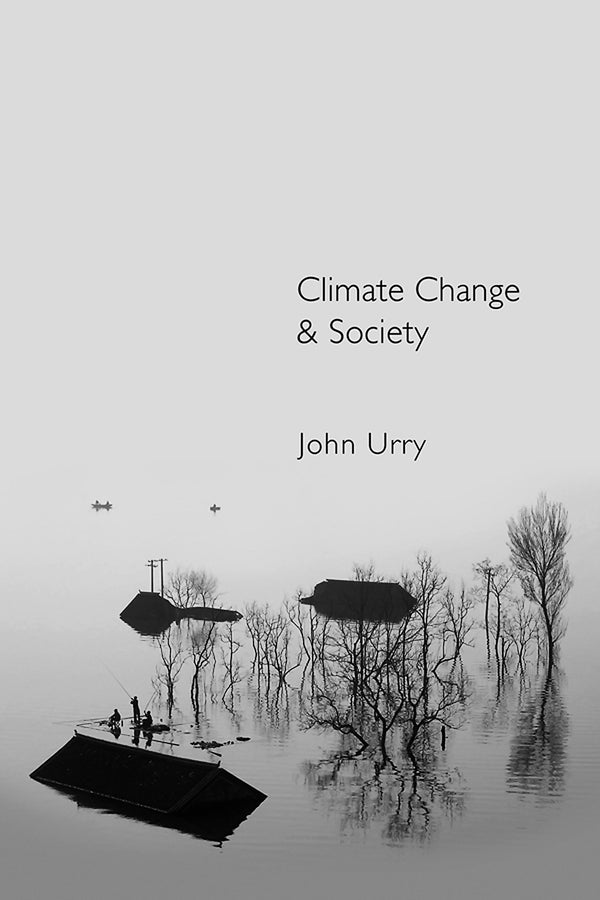Description
Explore the urgent topic of climate change with 'Climate Change and Society,' a groundbreaking book that delves into the intricate relationship between human behavior and environmental change. This comprehensive 200-page text, published by John Wiley & Sons in 2011, pushes the boundaries of traditional economic analysis and places social practices at the forefront of understanding climate dynamics. The book investigates the multifaceted impacts of changing climates, emphasizing the interconnected nature of human systems and greenhouse gas emissions. Key to its thesis is the analysis of the high carbon social systems established throughout the twentieth century, which have contributed to significant population growth and increased emissions. Furthermore, it critically assess the implications of these practices on global climate policies and the need for a rapid transition to low carbon systems in the twenty-first century. This vital resource advocates for innovative approaches to mitigate climate impacts and explores various scenarios for sustainable social futures. Bundle this essential read with your climate change knowledge and take a step towards understanding how we can reshape human behavior to create a sustainable planet. Note: Shipping for this item is free. Please allow up to 6 weeks for delivery. Once your order is placed, it cannot be cancelled. Condition: BRAND NEW. ISBN: 9780745650371.
Note: Shipping for this item is free. Please allow up to 6 weeks for delivery. Once your order is placed, it cannot be cancelled.
Condition: BRAND NEW
ISBN: 9780745650371
Year: 2011
Publisher: John Wiley & Sons (UK)
Pages: 200
Description:
This book explores the significance of human behaviour to
understanding the causes and impacts of changing climates and to
assessing varied ways of responding to such changes. So far the
discipline that has represented and modelled such human behaviour
is economics.
By contrast Climate Change and Society tries to place the
?social? at the heart of both the analysis of climates
and of the assessment of alternative futures. It demonstrates the
importance of social practices organised into systems. In the
fateful twentieth century various interlocking high carbon systems
were established. This sedimented high carbon social practices,
engendering huge population growth, increasing greenhouse gas
emissions and the potentially declining availability of oil that
made this world go round. Especially important in stabilising this
pattern was the ?carbon military-industrial complex?
around the world.
The book goes on to examine how in this new century it is systems
that have to change, to move from growing high carbon systems to
those that are low carbon. Many suggestions are made as to how to
innovate such low carbon systems. It is shown that such a
transition has to happen fast so as to create positive feedbacks of
each low carbon system upon each other. Various scenarios are
elaborated of differing futures for the middle of this century,
futures that all contain significant costs for the scale, extent
and richness of social life.
Climate Change and Society thus attempts to replace
economics with sociology as the dominant discipline in climate
change analysis. Sociology has spent much time
Note: Shipping for this item is free. Please allow up to 6 weeks for delivery. Once your order is placed, it cannot be cancelled.
Condition: BRAND NEW
ISBN: 9780745650371
Year: 2011
Publisher: John Wiley & Sons (UK)
Pages: 200
Description:
This book explores the significance of human behaviour to
understanding the causes and impacts of changing climates and to
assessing varied ways of responding to such changes. So far the
discipline that has represented and modelled such human behaviour
is economics.
By contrast Climate Change and Society tries to place the
?social? at the heart of both the analysis of climates
and of the assessment of alternative futures. It demonstrates the
importance of social practices organised into systems. In the
fateful twentieth century various interlocking high carbon systems
were established. This sedimented high carbon social practices,
engendering huge population growth, increasing greenhouse gas
emissions and the potentially declining availability of oil that
made this world go round. Especially important in stabilising this
pattern was the ?carbon military-industrial complex?
around the world.
The book goes on to examine how in this new century it is systems
that have to change, to move from growing high carbon systems to
those that are low carbon. Many suggestions are made as to how to
innovate such low carbon systems. It is shown that such a
transition has to happen fast so as to create positive feedbacks of
each low carbon system upon each other. Various scenarios are
elaborated of differing futures for the middle of this century,
futures that all contain significant costs for the scale, extent
and richness of social life.
Climate Change and Society thus attempts to replace
economics with sociology as the dominant discipline in climate
change analysis. Sociology has spent much time

